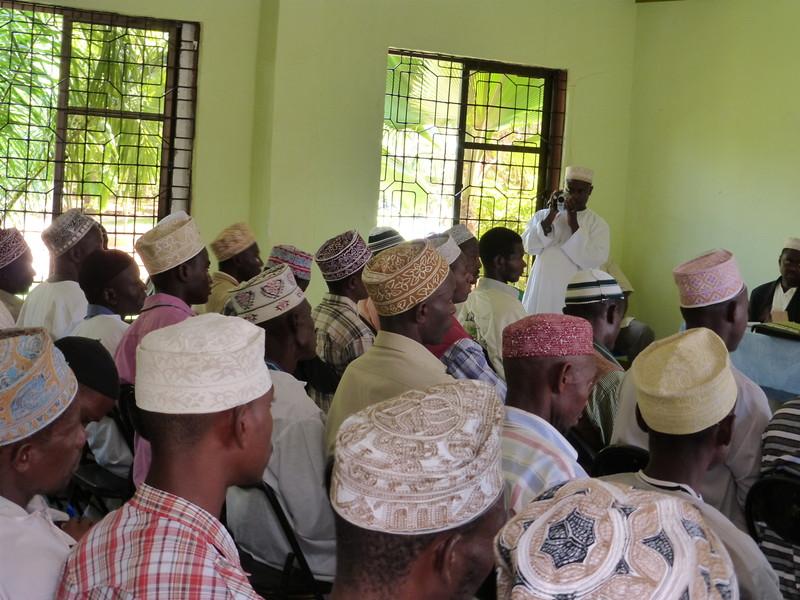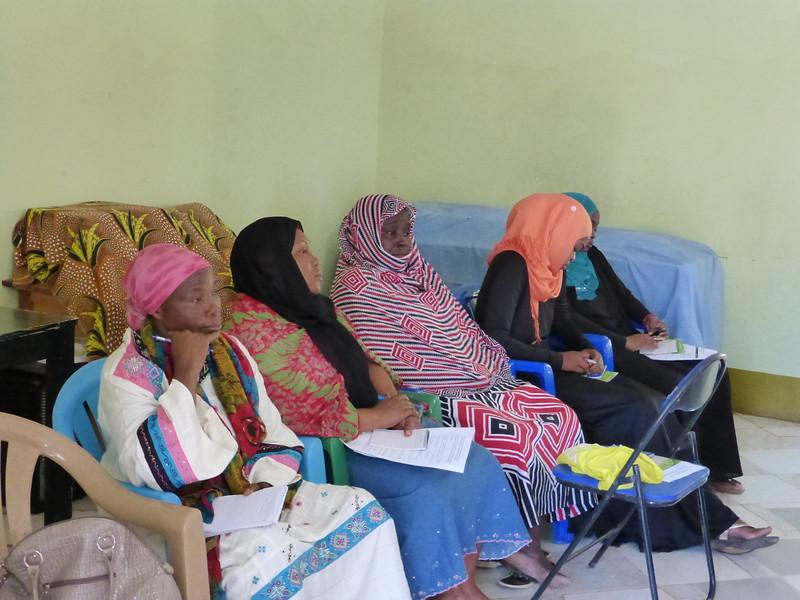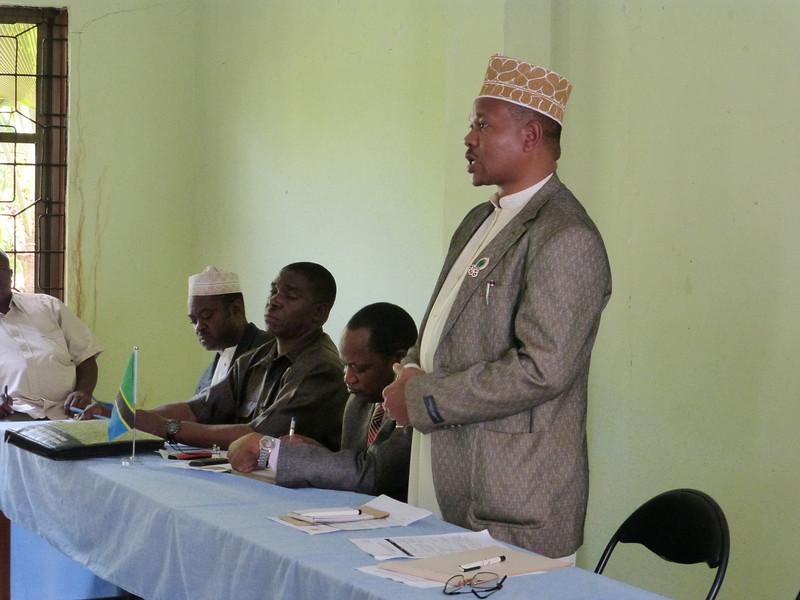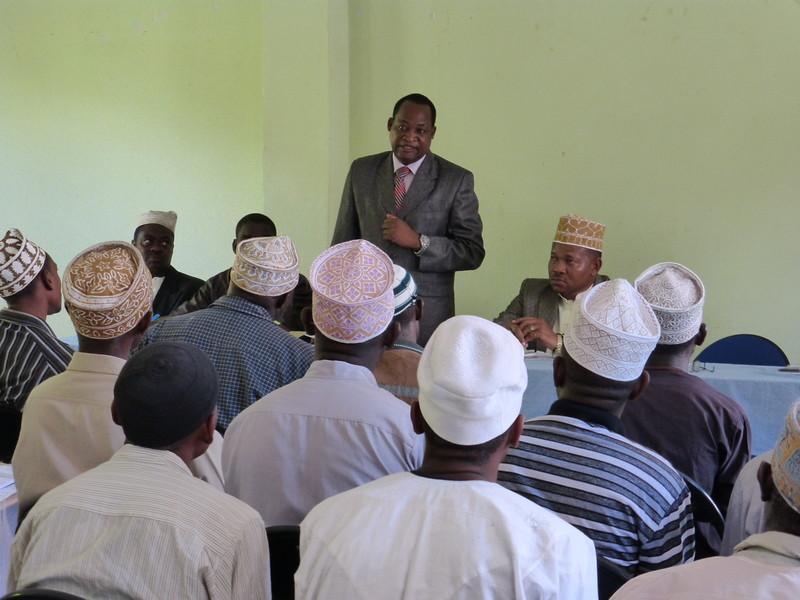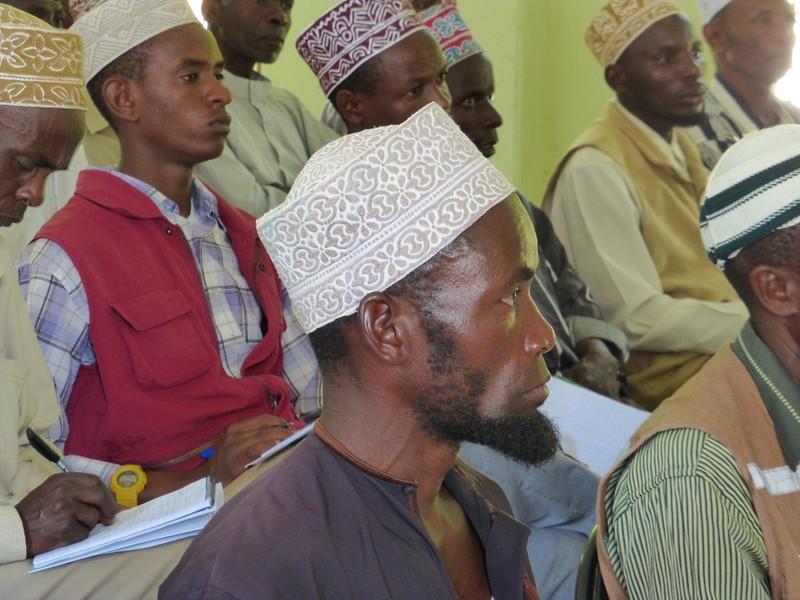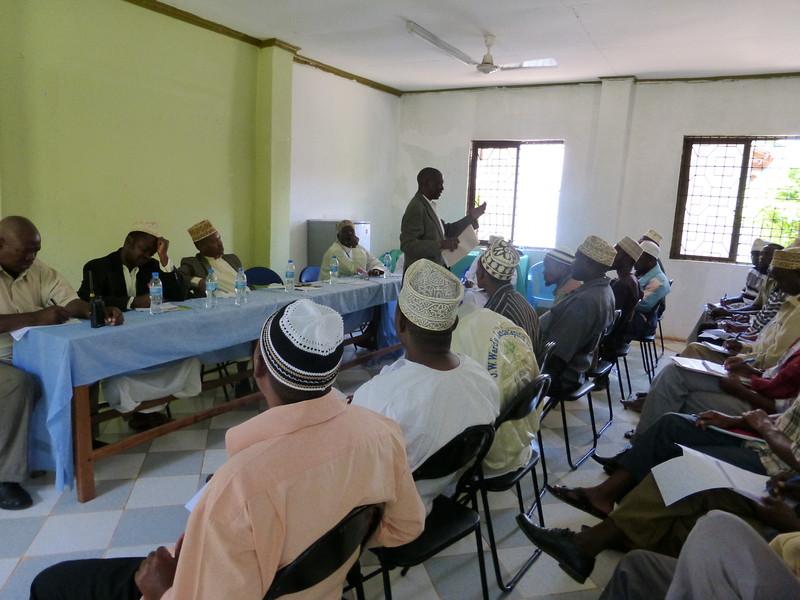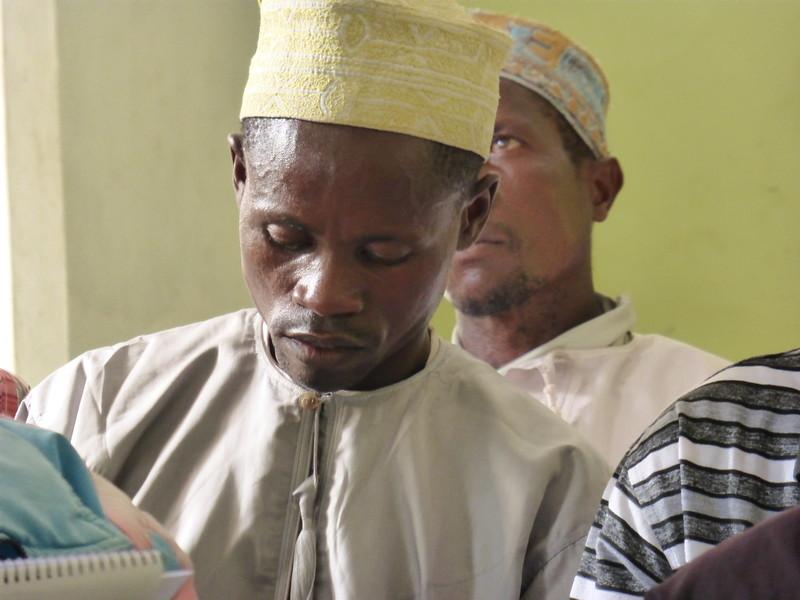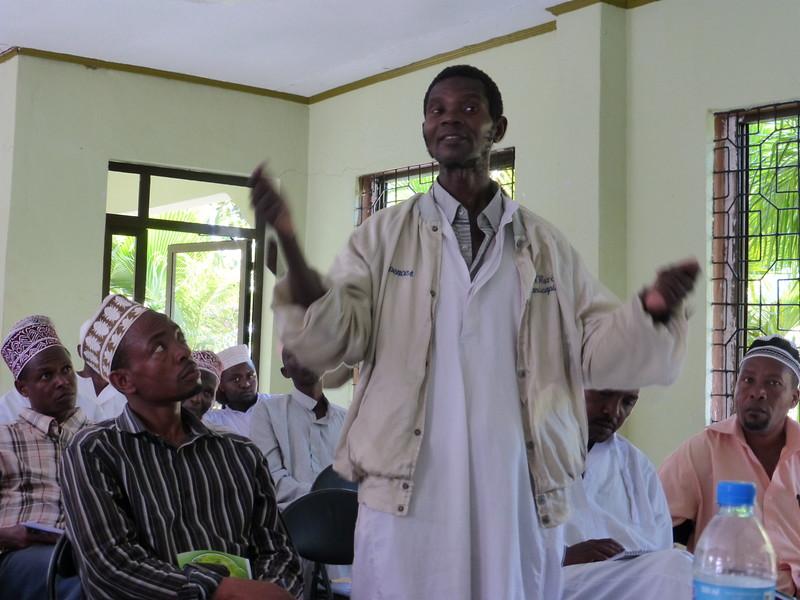Event reports
On behalf of Konrad-Adenauer-Stiftung (KAS), the Programme Coordinator, Richard Shaba, informed the delegates that KAS has been operating in Tanzania since 1964. The thrust of her work is to promote democracy, good governance, rule of law, social market economy and international relations. The key components of her work include civic education, interfaith dialogue and support to multi-party democracy.
On the Interfaith Dialogue front, KAS reaches the religious leaders through Interreligious Council for Peace Tanzania (IRCPT). The effort is complemented by direct contacts to JUWAQUTA, Tanzania Muslim Professionals (TAMPRO), Muslim Women, Wanawake wa Kikatoliki Tanzania (WAWATA), Christian Professionals of Tanzania (CPT). KAS partners with these organizations at the professional level towards the peaceful and harmonious objectives of the said partners.
The JUWAQUTA (JQT) National Chairman, Alhaj Sheikh Alhad Musa Salum, set the pace of the workshop through his direction-setting speech. He reminded the delegates what JQT is; where it came from; where is its future. He stressed the role of the teachers of Quran in maintaining peace and harmony within their communities. He went back to history and narrated the efforts taken by JQT, various Islamic organizations, Tanzania Muslim Professionals, and curriculum experts from the Ministry of Education to develop, print and distribute the ‘Joint Curriculum for Madrassa and Primary Schools in Mainland Tanzania.’ The Joint Curriculum aimed at improving the way Islamic Knowledge as well as pertinent secular issues are taught to the young scholars. JQT was encouraged by their Patron, former President Ali Hassan Mwinyi; the Ministry of Education; some cabinet ministers to develop a joint curriculum. He confessed that the initial print-run was very low and the reach was equally low. He promised to discuss with their partner KAS the possibility of a fresh print-run.
He impressed upon them to always consult the Holy Quran for reference when religious conflicts and/or disharmony show their ugly face. The Holy Quran is very clear about the relationship between Muslims and none-Muslims. It is everything but conflict-ridden and destructive of the community.
The official opening was done by the Same District Commissioner, Hon Herman Clement Kapufi, detailing the reasons for the religious tolerance and peace. He stressed the fact that the same can only be achieved if the ‘holy tripartite’ – namely the the religious leaders: the government; and the communities – agree to work together and cooperate for mutual benefit.
Presentation One: Sheikh Idd Juma (Same District Sheikh)
The role and responsibilities of the Quran Teacher in promoting religious peace and tolerance as per the Holy Quran and Sunna. The District Sheikh did justice to the subject matter, enhancing his presentation with live local examples. The feed-back from the teachers proved that they both understood the subject matter as well as accepted the contents.
Presentation Two: Richard Shaba (KAS)
The contributions of the Quran Teacher to the community; socially, politically and economically.
The objective was to establish how the teachers perceive themselves vis-à-vis the community surrounding them. Are they part of the community; or are they mere ‘observers’ of what is taking place in the community. Do the teachers perceive themselves s as ‘communal leaders’ or ‘leaders of the Muslim community only’? In the unlikely event of a religious conflict taking place; are the teachers able to mediate impartially? Do the teachers consider their communal duty to bring together the different faiths and train them to be tolerant of each other and learn to respect each other’s faith? The interactive session which followed allowed the teachers to critically re-examine the presented aspects and agree to address any weaknesses real or perceived.
Presentation Three: Sheikh Alhad Musa Salum (JQT Chairman)
Relationship between Muslims and Non-Muslims in accordance with the Holy Quran and Sunna
Sheikh Alhad Musa Salum made a brilliant presentation. Expertly combining the daily occurrences and the quotations from the Holy Quran. Since his session was interactive; the teachers had to cite the Holy Quran and relate to what takes place in the communities on daily basis. The central question was always: “Are we doing what the Holy Book expects us to do?” Any mis-interpretation and/or mis-representation of the Holy Quran was positively and successfully challenged by the presenter.
All-in-all the workshop enabled the teachers re-visit their teachings and express/clear and doubts they had concerning their role in the community and vis-à-vis none-Muslims. They felt challenged; but to their credit they accepted the challenge and worked on it.



